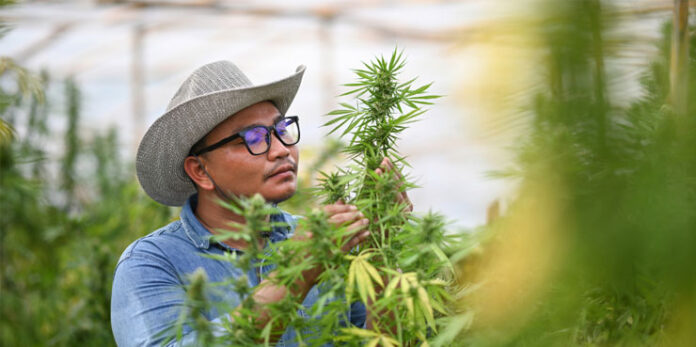The New York State Cannabis Control Board just adopted rules that would allow anyone 21 or older to cultivate their own marijuana plants at home.
The proposed regulations were approved nearly three years after marijuana was legalized in the state and include a provision that would allow retail marijuana store owners and operators to sell starter plants to customers.
“I applaud New York’s decision to embrace home grow as it recognizes the growing desire for consumer autonomy and opens exciting possibilities for both New Yorkers and the legal cannabis industry,” says Sarah Carter, Communications Director at Symple Seeds. “Home cultivation not only provides enthusiasts with the opportunity to engage in a hands-on and educational experience but also supports the principles of self-sustainability and responsible cannabis consumption. It allows individuals to have a deeper understanding of the plant, its various strains, and the cultivation process.”
What Happens Next?
As stated in Norml, the new regulations will:
- Permit an adult to grow up to six plants (no more than three mature) on private property and harvest up to five pounds of cannabis flower.
- Cultivators will have the legal option of converting their flower to concentrates.
- Households with multiple adults will be permitted to grow a total of six mature plants.
- Cultivators will be permitted to grow from seeds or they can purchase immature plants from licensed providers.
Currently, only those registered in the state’s medical cannabis access program are permitted to engage in the personal cultivation of cannabis.
Improving Responsible Cannabis Consumption
These new home grow regulations have the potential to significantly improve responsible cannabis consumption in the state, according to Carter. Allowing consumers to cultivate marijuana at home empowers them to take charge of their supply, fostering a sense of personal responsibility and accountability.
“This approach encourages consumers to ensure the quality and purity of their cannabis, reducing the reliance on the illicit market and promoting a safer and healthier consumption experience,” says Carter. “Furthermore, regulated home cultivation provides an opportunity for community engagement, knowledge sharing, and the establishment of responsible consumption practices within local communities.”










